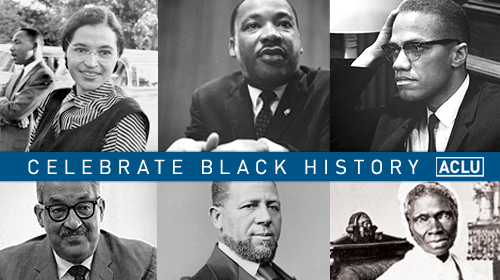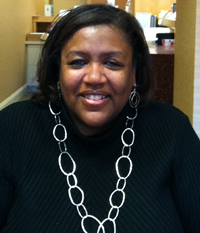
When I first started working for the ACLU’s Washington Legislative Office (WLO) in 2003, Laura Murphy, the Director of the WLO encouraged me to think about what I wanted my legacy to be with the organization. In other words, she was reminding me that working for the ACLU is like no other job you will have in your career. What she knew from her years of experience with the ACLU, is that working for this organization opens up opportunities that many people will never have during their careers; and that is to leave your mark on the world.
I did not immediately have an answer to the question of what I wanted my legacy to be and some people even tried to suggest what they thought it should be. As I continued my work, I began to understand how the notorious 100-to-1 federal disparity between crack and powder cocaine was fueling the disproportionate number of African-Americans in the federal criminal justice system. Laura and others at the ACLU had been lobbying to equalize the federal crack cocaine disparity for years before I began working with a reinvigorated coalition to correct this injustice in federal law.

Jesselyn McCurdy is a Senior Legislative Counsel in the Washington Legislative Office (WLO) of the American Civil Liberties Union (ACLU) and is responsible for defending civil liberties in Congress and in the Executive Branch in the areas of criminal justice. Ms. McCurdy was a member of the ACLU WLO staff for five years before accepting a position as a Counsel with the U.S. House of Representatives Judiciary Committee’s Subcommittee on Crime, Terrorism, and Homeland Security. She was the lead House counsel for the historic Fair Sentencing Act of 2010 when it passed Congress. Ms. McCurdy received a BA in Journalism and Political Science from Rutgers University and her JD from Catholic University of America, Columbus School of Law.
In 2005, many criminal justice and civil rights groups saw that legislators on both side of the aisle were ready to address the federal crack cocaine law. The ACLU worked with coalition partners and Members of Congress to dispel the 20-year-old myths about crack cocaine and educate people about that the fact that there is no real pharmacological difference between the two drugs. I later left the ACLU and took my passion for the issue with me to House Judiciary Committee and ultimately was the lead counsel for the committee in 2010 when the Fair Sentencing Act, the bill that reduced the disparity to 18-to-1, passed and was signed into law.
Had Laura not asked me the question about my legacy, I may not have thought about my work in that way. I may not have fully realized the impact that the ACLU and other criminal justice and civil rights groups can have on real people’s lives by advocating for fair and just criminal justice policies. Now, when I hear about someone being released from prison (mostly African-Americans) because of the tireless advocacy of the ACLU to address the crack disparity, I think less about making my mark. Now that I have returned to the ACLU, I think more about being proud of being a part of the legacy of a long line of dedicate ACLU lawyers and advocates who have left their legacy by protecting the Constitution and our civil rights and civil liberties.
During Black History Month and all throughout the year, we commemorate the achievements of African-Americans, celebrate the legacy of those involved in the struggle, and rededicate our commitment to the work.
This blog post is one of several personal testimonials written by ACLU staff members to commemorate Black History Month.
Do you know who’s pictured in our Celebrate Black History logo? Top row, from left to right: Rosa Parks, Martin Luther King, Jr. and Malcolm X. Bottom row, from left to right: Thurgood Marshall, Hiram Rhodes Revels and Sojourner Truth.
Learn more about drug sentencing: Sign up for breaking news alerts, follow us on Twitter, and like us on Facebook.


